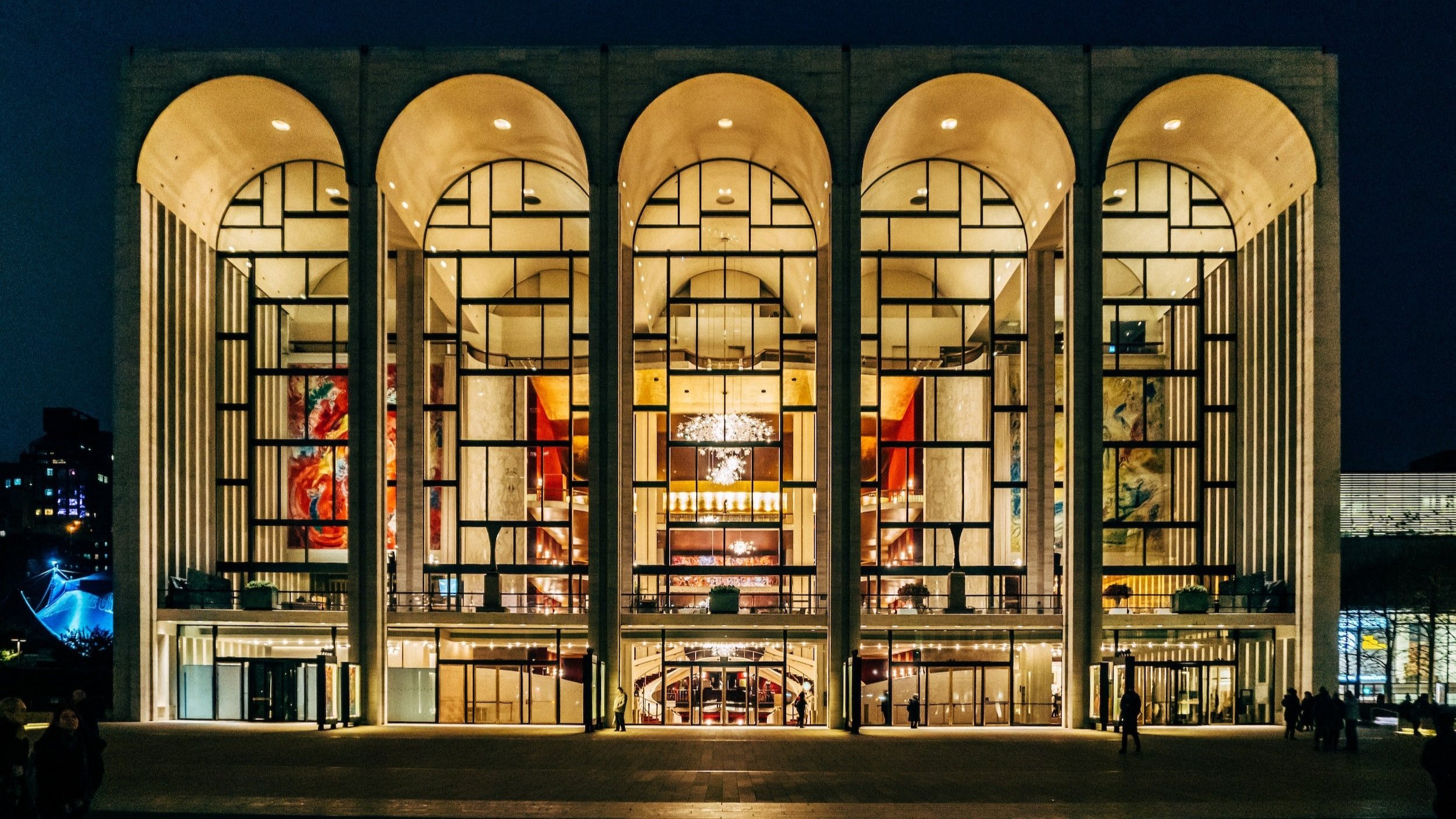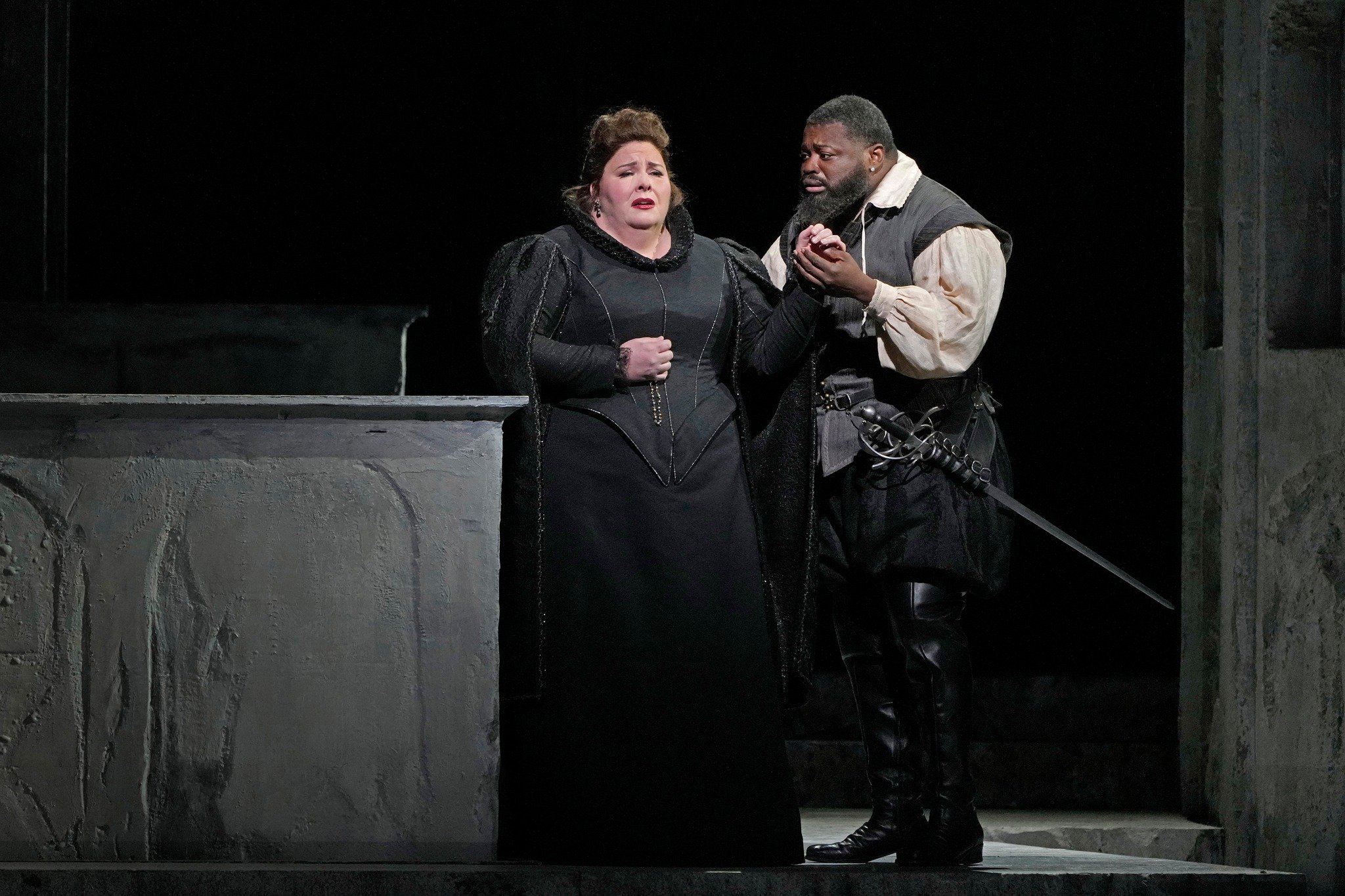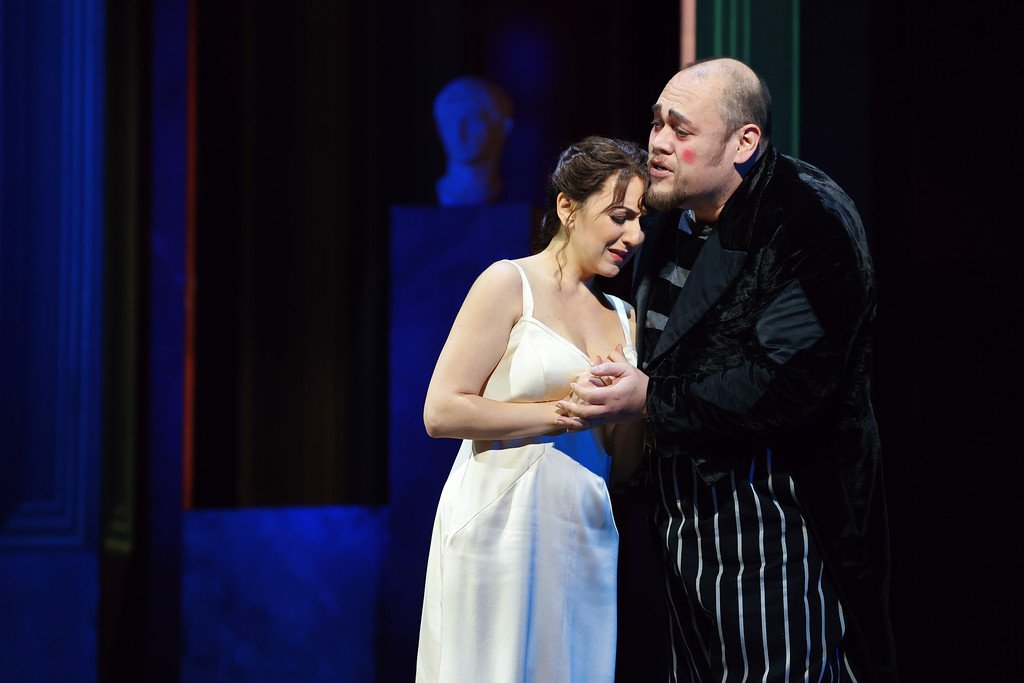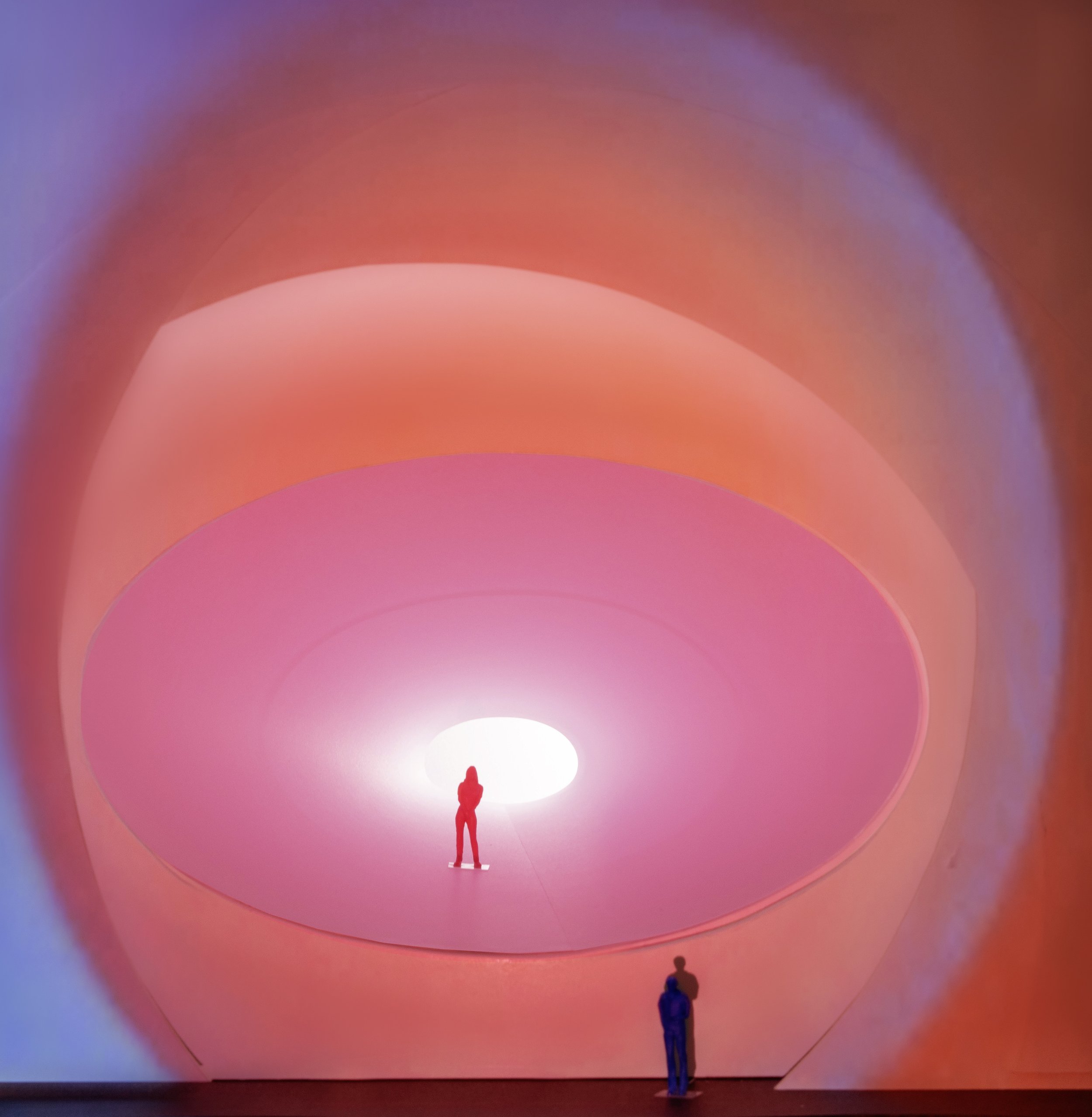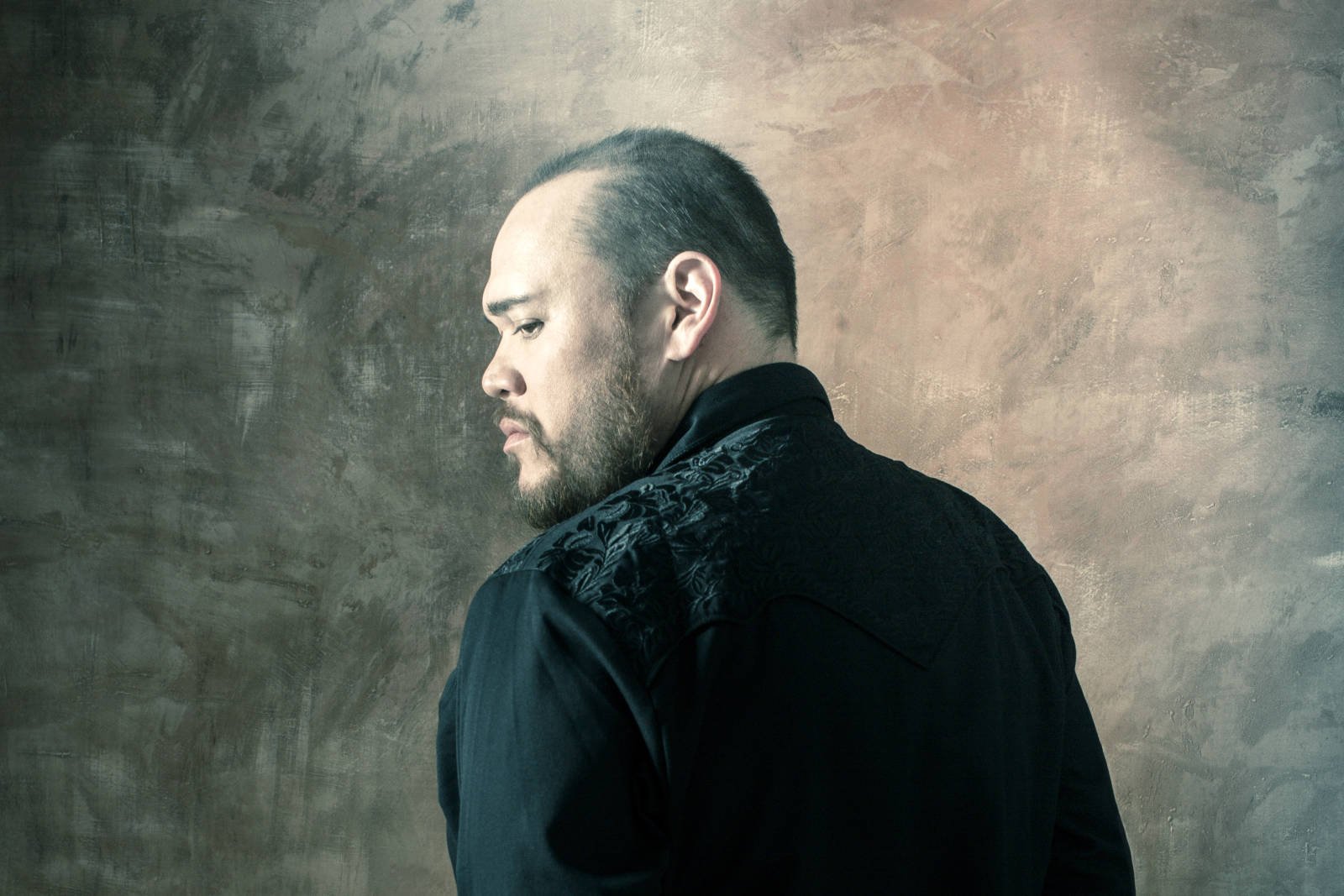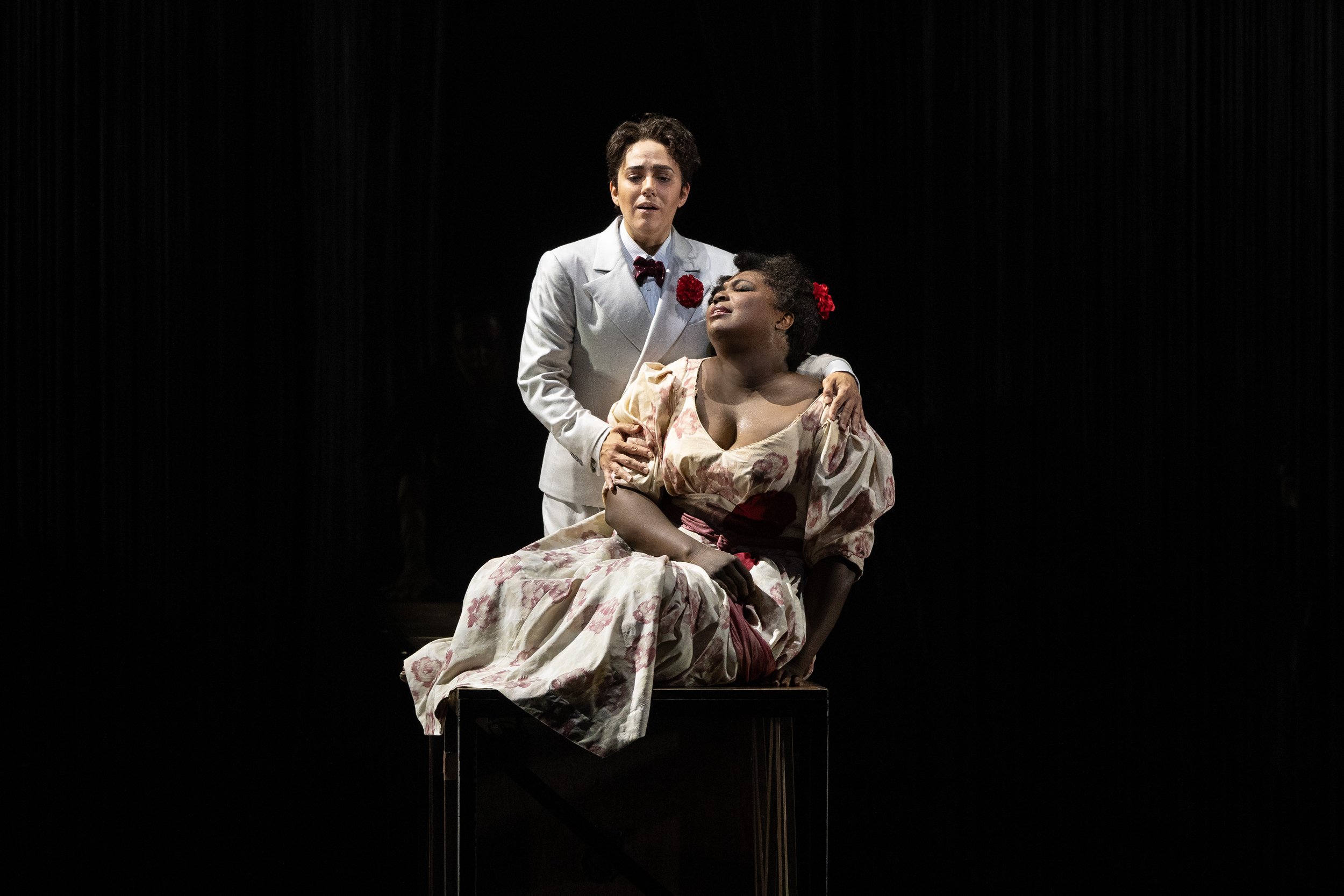The Met’s Winter Operafest: December 2022
While the Met presents extraordinary, world-class opera year-round, two months in particular jumped out at me from the season book this year: December and January. Jam-packed with the most indispensable of classics, this winter promises to be a truly thrilling operafest.
The Hours
From left: Kelli O’Hara, Renée Fleming, and Joyce DiDonato in The Hours. (Evan Zimmerman/Met Opera)
While most operas being performed at the Met this winter are 19th-century masterpieces, first up in December is The Hours, a new opera by the Pulitzer-Prize-winning composer Kevin Puts. It’s the world-premiere production of this vivid and deeply human drama.
The Hours, which takes place over a single day, is about three troubled women in different times and places whose lives are linked by Virginia Woolf’s novel Mrs Dalloway. The opera is based on the 1999 novel by Michael Cunningham and its starry 2002 film adaptation. The novel won a Pulitzer, the movie won an Oscar, and the opera just might win a Grammy.
If it does indeed win a Grammy, it would be in no small part because of its incredible cast. Superstar soprano Renée Fleming, still splendid at 63, is Clarissa Vaughan, the editor whose life parallels Mrs Dalloway’s. Renée announced her retirement in 2017 and was given a grand sendoff in Der Rosenkavalier. But when the Met announced its 2022-23 season, I screamed out loud.
Renée is back — and sounds as if she’d never left.
Kelli O’Hara, sparkling voice aglow, is the stifled housewife Laura Brown. Ms. O'Hara is one of those rare performers who are at home both in opera and on Broadway. Although she has made her mark mostly on Broadway, earning seven Tony nominations, she’s no newcomer to the Met; she's sung there in Lehár’s operetta The Merry Widow and in Mozart’s Così fan tutte. Broadway, operetta, Mozart, and modern opera — that's versatility!
Last but certainly not least, enthralling coloratura mezzo Joyce DiDonato is the pioneering writer Virginia Woolf. I couldn’t take my eyes off her. Joyce is not only an utterly believable actress with a nuanced and thrilling voice — there’s something spellbinding about her that pins you to your seat —, but she is also one of the kindest and most approachable singers I’ve met. (She once gave me one of her bouquets!)
Those who know me know that I do NOT like modern opera or contemporary classical music. However, I was intrigued by the excerpts, and who wouldn’t jump at the chance to see a world premiere at the Met with these three marvelous divas? So I went, and was pleasantly shocked: I loved it! The combination of the central ladies’ sound worlds and stories is gripping, lyrical, and poignant. The Hours is a timely (pun intended) and powerful gem!
Dates: November 28, December 1, 4, 7 (radio), 10 (radio and cinema), 15
Aida
The Metropolitan Opera in Aida. (Marty Sohl/Met Opera)
Now we go to Verdi. I have no favorite opera — you don’t need to choose, no matter what people tell you — but if I made a list of my favorites, Aida would have to be near the top. The Met’s Aida is the grandest production of the grandest of grand operas, a compelling and gorgeous drama of a war between patriotic loyalty and love.
Aida is an Ethiopian princess held captive in Egypt as the personal slave of Amneris, the daughter of the pharaoh. The two princesses (although Aida has kept her royal blood a secret) both love Radamès, the heroic Egyptian general fresh off a victory over the Ethiopian army. Radamès respects Amneris but loves Aida, who is torn between her country and her lover. Worse, Amneris has discovered their romance.
Latonia Moore and Michelle Bradley alternate as Aida, the role that Ms. Moore sang for her Met debut and has made her signature. Brian Jagde sings Radamès and Olesya Petrova sings Amneris until December 13 (and then in April and May), when Anita Rachvelishvili takes over the rest of the December run.* Anita, with her velvety and immense voice, is “the greatest Verdian mezzo on the planet, without doubt,” in the words of renowned conductor Riccardo Muti.
Commissioned to celebrate the opening of the Suez Canal, Aida is a heartbreakingly and heart-poundingly beautiful masterpiece. From the colossal Act 2 Triumphal March and Finale to Aida’s lament “O patria mia” in Act 3 to the Judgment Scene in Act 4, you can’t help but be dazzled. The fabulously extravagant production is my favorite and arguably the second-most iconic opera staging ever (first is the Met’s La Bohème); massive Egyptian statues, hieroglyphs, lavish headdresses, and whirling dancers light up the stage everywhere you look. This is its last season at the Met, and I will mourn it forever. I won’t miss out on it, come hail or high waters, and if you do, I promise that one day you’ll regret it. So don’t miss out.
Dates: December 2 (radio), 6, 10, 13, 17, 21 (radio), 27
*There were too many cast changes to note here, but everyone did sing at least one performance.
Don Carlo
From left: Angela Meade and Russell Thomas in Don Carlo. (Ken Howard/Met Opera)
Verdi’s Don Carlo is a dark tale of forbidden love and political intrigue amid the Spanish Inquisition. It stars Russell Thomas as the tormented prince Don Carlo and Angela Meade as the French princess Élisabeth of Valois, torn between her love for him and loyalty to her husband. Oh, and her husband happens to be Carlo’s father, Philip II of Spain, who’s being sung by Gunther Groissböck. Élisabeth and Carlo were originally the ones engaged, as part of a peace treaty between France and Spain, but at the last minute, the treaty swapped the son out for the father. Needless to say, neither Élisabeth nor Carlo is very happy about this. Yulia Matochkina and Peter Mattei interpret the supporting but formidable roles of Princess Eboli, Élisabeth’s confidante, and Rodrigo, the Marquis de Posa and Carlo’s best friend.
Although the opera, which is Verdi’s longest and was revised four times, was originally in French, opera companies usually present it in Italian translation. Most operas used to be performed in Italian, regardless of their original language. Even the Met did it, although they did have periods where they performed everything in English or German. Now operas are almost always performed in their original language… but Don Carlos lingers on as Don Carlo. Only last year did the Met present the full five-act French version, but now they are performing it in Italian and without its first act.
The production is by David McVicar, the Met’s current director of choice (he’s directing five productions this season). McVicar leaves the opera, very loosely based on real historical events, in its original setting. His production, like many of his, is grim and shadowy, with a mostly gray and black color palette.
Don Carlo closes on December 3rd, so hurry if you want to see it!
Dates: November 26, 30, December 3
Rigoletto
Rosa Feola and Quinn Kelsey in Rigoletto. (Curtis Brown/Met Opera)
Our third and last Verdi opera in December is Rigoletto. It’s the tragic story of Rigoletto (surprise!), the hunchbacked jester of the Duke of Mantua, a notorious and shameless philanderer. Rigoletto is cursed by an anguished father whom he mocked, and the effects quickly spill over into his family life. The weight of the curse falls on his own daughter, the innocent Gilda, whom he has sheltered from the world in fear of the Duke and other predators. But this jester’s parental paranoia can only go so far…
The production, set in the Weimar Republic, has multiple casts this year. The two Gildas have voices straight from heaven; Rosa Feola performs until the 3rd, then passes the role to Lisette Oropesa. Their Dukes are Frenchman Benjamin Bernheim, making his highly anticipated Met debut, and lyric tenor fixture Stephen Costello. Three baritones sing Rigoletto: the resonant Quinn Kelsey; Michael Chioldi, who made the leap from covers to lead roles last season; and Luca Salsi, in his second of three roles this season at the Met. The sibling assassin duo, Sparafucile and Maddalena, are sung by the reliable John Relyea and Aigul Akhmetshina.
Verdi and his librettist, Francesco Maria Piave, fought and dodged the Austrian censors to write Rigoletto, based on Victor Hugo’s play Le roi s’amuse (The King Amuses Himself). The censors only approved it after much wrangling and promises to change the location of the play from France to Mantua, the amoral king’s rank, and most of the characters’ names. Verdi’s perseverance paid off, and Rigoletto was a smash hit — which the composer seems to have anticipated, as he kept the song from the lead tenor until dress rehearsal and even then forbade him from singing or whistling “La donna è mobile” before the premiere.
Unfortunately, “do not visit the sins of the father on the child” does not apply here, but for all its sorrow, I wish Rigoletto were performed every season. This year, we’re lucky. I advise you to bring tissues.
Dates: November 26, 29, December 3, 8, 11, 14, 17 (radio), 20, 23, 29 (radio)
The Magic Flute
Markus Werba with flamingoes in the German version of The Magic Flute. (Richard Termine/Met Opera)
Just in time for the holidays, New York families are treated to the Met’s yearly revival of Julie Taymor’s delightfully whimsical production of Mozart’s fairy tale, The Magic Flute. Abridged and in English for a more family-friendly experience, it’s lively, light, and entirely enjoyable.
The opera explores themes of virtue, good vs. evil, and “brotherhood” (a thinly veiled reference to Freemasonry) with the story about Prince Tamino’s quest to save Princess Pamina and achieve enlightenment. Tamino has Papageno, a sensible but clownish birdcatcher, as his sidekick, although the duo’s courage and goals could hardly be more different. Yes, The Magic Flute is corny, but it has kernels of wisdom.
The Met’s production is a joy! I have a whole post on this coming in the first week of December, so I’ll keep this short. The director, Julie Taymor, has won acclaim for directing the biopic Frida (2002) and staging The Lion King, which is still running on Broadway 25 years later. The Magic Flute is the English translation of Die Zauberflöte, my very first opera. The production is full of dancing animals, masked puppeteers, and very creative costumes (also by Ms. Taymor). I could hardly adore it more!
Joélle Harvey and Sydney Mancasola take their turns as Pamina, while Ben Bliss and David Portillo repeat their portrayals of the steadfast Tamino. Joshua Hopkins is Papageno for all but two performances, and Aleksandra Olczyk makes her debut as the high-flying Queen of the Night, Pamina’s mother.
Irresistible for children and entertaining for adults, The Magic Flute is the perfect holiday opera. You’ll come away feeling cheered and energized, and isn’t that what we all need?
Dates: December 16 (radio), 18, 22, 24 (radio), 26, 28, 30

